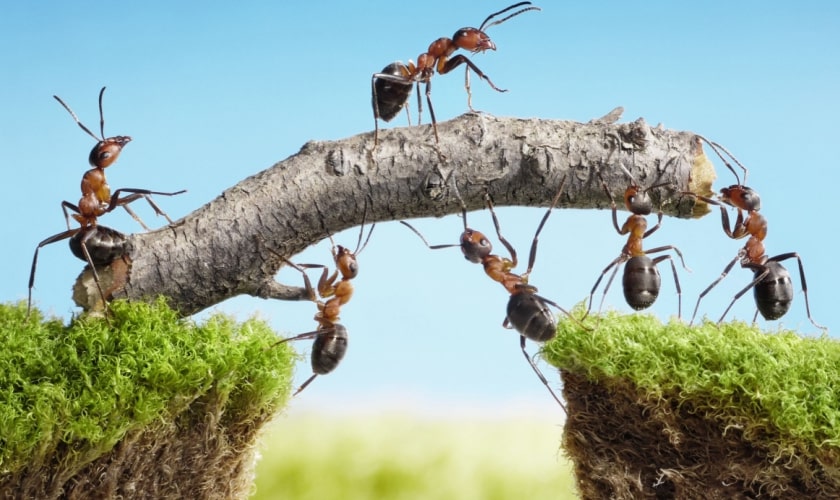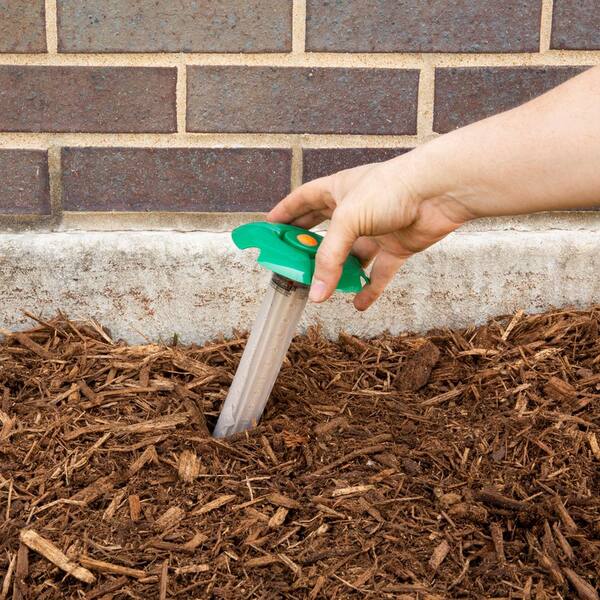Expert Ant Control Services: Customized Treatments for Lasting Results
Wiki Article
Ecological Effect of Bug Control: Balancing Effectiveness With Sustainability
The ecological influence of bug control is a critical concern that needs a delicate equilibrium in between accomplishing effectiveness in guaranteeing and managing parasites sustainability of our environments. As we aim to protect our plants, homes, and health and wellness from the threats postured by bugs, the methods we use can unintentionally harm the setting. From making use of hazardous chemicals that seep right into our soil and water to the unintended repercussions on non-target species, the effects of traditional parasite control methods are far-ranging. Nevertheless, there are arising methods that provide wish for a more lasting approach to pest administration. These remedies not only goal to address the instant parasite problems however additionally think about the lasting health of our world.Dangerous Chemicals in Bug Control
The application of harmful chemicals in pest control positions significant environmental and health risks that warrant careful consideration and reduction strategies. Herbicides, pesticides, and insecticides are commonly used to eliminate bugs, yet their prevalent application can bring about unintentional repercussions. These chemicals can pollute soil, water sources, and the air, affecting not just the targeted bugs however likewise helpful bugs, wildlife, and humans.
To address these risks, incorporated pest management (IPM) techniques are being promoted as a more sustainable option. IPM includes a combination of techniques such as organic control, environment manipulation, and the targeted use pesticides as a last hope (ant control harrisburg nc). By embracing an alternative technique to pest control, we can reduce the environmental and health impacts related to dangerous chemicals while successfully taking care of pest populations
Influence On Non-Target Variety
Thinking about the unintentional effects of bug control methods, the impact on non-target types is a vital aspect that calls for extensive assessment. While pest control procedures aim to target details bugs, other microorganisms in the community might be accidentally impacted. Non-target varieties, consisting of useful insects, birds, animals, and also plants, can experience direct or indirect injury from pesticide applications or organic control methods.Insecticides designed to fight a certain bug pest might hurt pollinators like bees or natural predators such as ladybugs. Biological control agents, if not species-specific, can position dangers to unplanned targets, disrupting the ecological equilibrium.
To mitigate the influence on non-target species, integrated insect administration (IPM) approaches that stress an all natural strategy to pest control are recommended. These methods prioritize the use of eco-friendly methods, lessening injury to beneficial organisms while efficiently handling pest populations. Conducting comprehensive risk assessments and checking the end results of parasite control initiatives are crucial steps in securing non-target varieties and promoting general environment wellness.
Dirt and Water Contamination
Unexpected environmental consequences of pest control approaches prolong beyond influencing non-target types, with substantial ramifications for soil and water contamination. Pesticides, herbicides, and chemical fertilizers used in parasite control can leach into the dirt and contaminate groundwater, posing a hazard to both terrestrial and aquatic ecosystems. Dirt contamination can disrupt the equilibrium of bacteria vital for nutrient biking and plant growth, causing decreased dirt fertility and efficiency. In addition, these chemicals can continue the setting for prolonged periods, accumulating in the dirt and possibly entering the food web.Water contamination is another important issue related to insect control methods. Drainage from agricultural areas treated with chemicals can bring these chemicals right into close-by water bodies, influencing aquatic organisms and water top quality. Contaminants in water resources can have significant consequences, impacting not just marine life however likewise human wellness via the usage of infected water or marine organisms. To reduce dirt and water contamination from pest control tasks, integrated parasite administration strategies that focus on sustainability and minimize chemical inputs are important.
Air Pollution From Chemical Usage
Direct exposure to air-borne chemicals throughout agricultural applications presents a substantial problem for air contamination control actions. They can volatilize into the air and kind volatile organic compounds (VOCs) and various other airborne pollutants when chemicals are sprayed onto plants - ant control services. These chemicals can add to the development of ground-level ozone, a major part of smoke that can have harmful effects on human wellness, plant efficiency, and general air quality. In addition, chemical drift, where pesticides are lugged by the wind to unexpected areas, can informative post cause the contamination of nearby ecological communities and water bodies.
Methods for Sustainable Bug Control
In the world of agricultural techniques, executing lasting pest control methods is paramount for keeping environmental balance and protecting crop yields. Lasting parasite control stresses the usage of environmentally pleasant methods to take care of pest populations properly while lessening injury to non-target microorganisms and ecosystems. Integrated Parasite Management (IPM) is a widely adopted approach that combines biological, social, physical, and chemical control approaches to attain lasting parasite monitoring options.Crop turning and diversification are additionally efficient strategies to interrupt pest life cycles and create much less beneficial problems for insects to grow. Eventually, by integrating these lasting insect control strategies, farmers can accomplish a balance between pest management efficiency and ecological stewardship.
Final Thought
Finally, the environmental influence of insect control approaches should be carefully taken into consideration to balance efficiency with sustainability. Hazardous chemicals utilized in pest control can bring about soil and water contamination, air contamination, and injury non-target types - termite control services. It is essential to carry out lasting bug control approaches to minimize these negative effects on the environment and promote a healthier community for future generationsBy taking on an alternative approach to pest control, we can decrease the ecological and health effects linked with hazardous chemicals while efficiently handling pest populaces.

To reduce the air contamination caused by chemical use, it is crucial to adopt incorporated pest monitoring strategies that focus on the usage of non-chemical insect control approaches, such as crop rotation, all-natural predators, and resistant plant varieties. Lasting parasite control highlights the usage of environmentally friendly approaches to manage bug populaces successfully while decreasing damage to non-target microorganisms and communities. Integrated Parasite Management (IPM) is a commonly adopted technique that combines organic, cultural, physical, and chemical control techniques to attain long-term insect administration remedies.
Report this wiki page